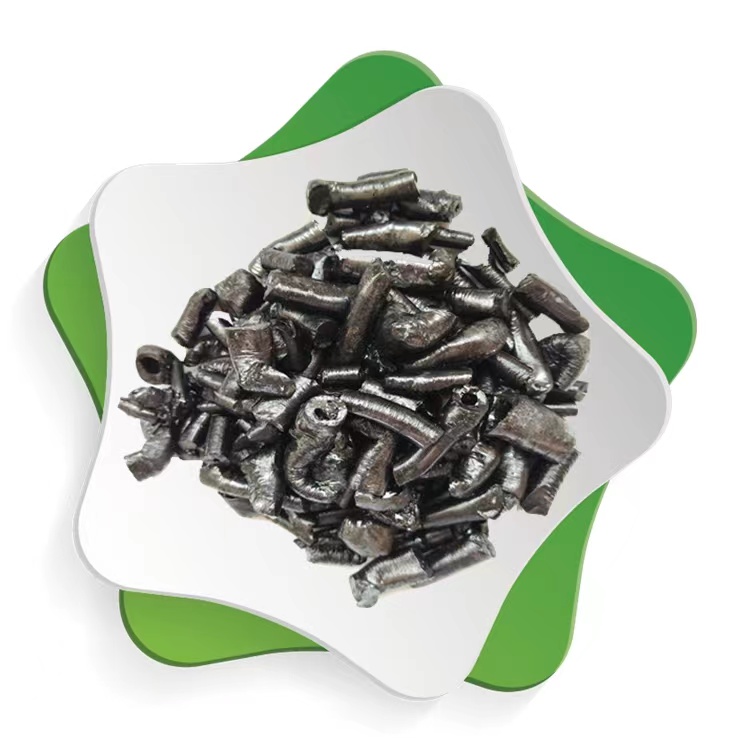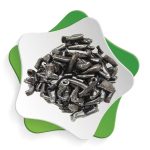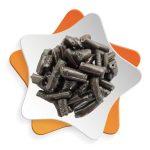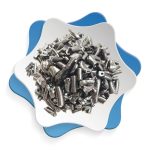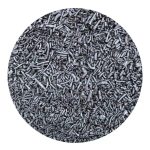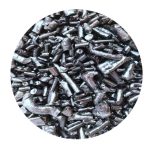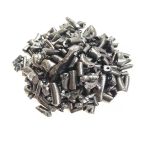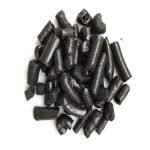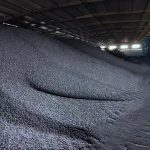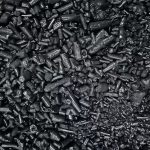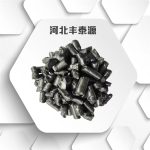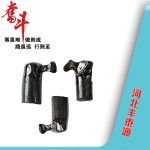Modified asphalt
Product Introduction
Modified asphalt is a black solid at room temperature, which solidifies into a brittle solid with shell-like fractures at a certain temperature, presenting a glass phase; There is no specific melting point, it melts within a certain range, and there is no thermal effect during the solidification process. The composition of asphalt is extremely complex, mainly composed of aromatic hydrocarbons with three or more rings, as well as heterocyclic compounds containing elements such as oxygen, nitrogen, and sulfur, and a small amount of high molecular weight carbon materials.
Modified asphalt is a type of asphalt that is deeply processed from coal tar or medium-temperature asphalt. Its characteristics are a high softening point, high coking residual carbon value, toluene insoluble content of over 25%, and quinoline insoluble content of less than 8%. When producing carbon products using coal tar pitch as raw material, different requirements are placed on the softening point. For example, electrodes require 105-115 ℃, anodes require 95-105 ℃, high softening point, high coking value, and high toluene insoluble content, which increases the mechanical strength of carbon products. During the mixing and shaping process, asphalt emits less smoke, reducing pollution. The high softening temperature and kneading temperature result in high thermal stability, which improves the quality of carbon products. Coal tar asphalt can be further divided into liquid asphalt and solid asphalt. Liquid asphalt does not contain water and can be directly used by manufacturers, but requires specialized tanker transportation. Solid asphalt must be melted to remove moisture before it can be used as a binder or impregnating agent for carbon materials.
Modified asphalt is used in the aluminum electrolysis industry to produce pre-baked anodes, manufacture high-power electrode rods, and graphite crucibles, and can also be used as electrode adhesives. High-temperature asphalt has the characteristics of fixed carbon, insoluble in toluene, high resin content, and low ash content. Widely used in carbon plants, pre-baked anode blocks, graphite crucibles, graphite electrodes, activated carbon, blast furnace iron hook materials, blast furnace spray repair materials, ramming materials, and casting materials, as well as amorphous refractory materials. As an additive to carbon materials, it can play a role in bonding and carbonization, improving the product's high temperature and corrosion resistance.
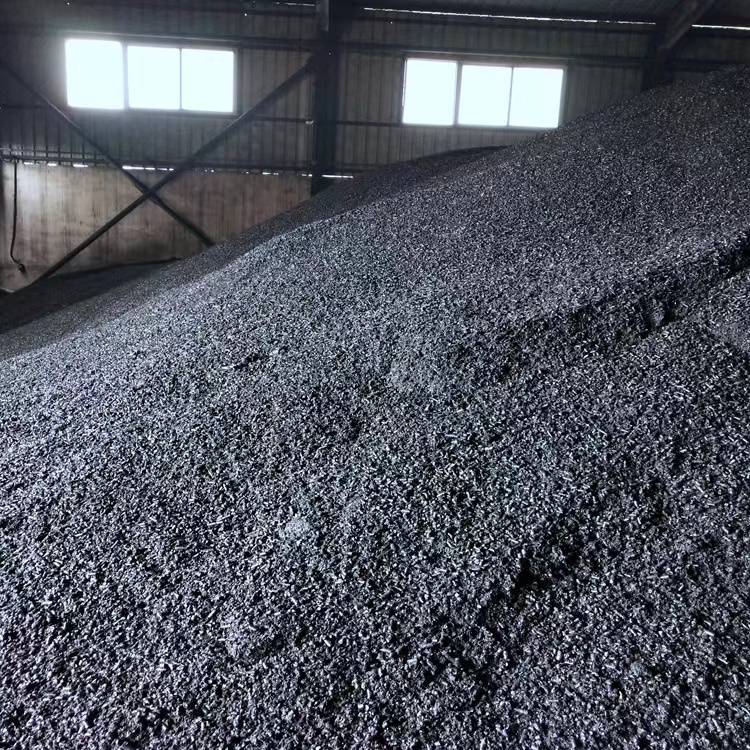
Modified coal tar pitch plays a crucial role in the electrolysis of aluminum in aluminum plants. Specifically, its role is mainly reflected in the following aspects:
- As a binder: Modified coal tar pitch is the main binder used in the production of pre-baked anode blocks for electrolytic aluminum. Pre-baked anode blocks are carbon blocks made from aggregates such as petroleum coke and asphalt coke, and coal tar pitch as binders, used as anodes in aluminum electrolysis cells. Coal tar pitch can firmly bond aggregates together, forming anode materials with certain strength and conductivity, thereby improving the efficiency of electrolytic cells and aluminum production.
- Prevent the formation of aluminum oxide: During the process of electrolytic aluminum, aluminum ions are easily oxidized into aluminum oxide, which not only affects the oxidation of aluminum but also leads to energy waste. Some components in modified coal tar pitch can inhibit the formation of aluminum oxide, thereby improving the quality and yield of aluminum.
Enhanced conductivity: Modified coal tar pitch can effectively enhance the conductivity of the electrolyte, allowing current to flow more smoothly, thereby improving the production efficiency of electrolytic aluminum.
- As a sealing and adsorption material: At the top and bottom of the electrolytic cell, modified coal tar pitch can form a sealing layer to prevent electrolyte leakage and external impurities from entering the electrolytic cell, ensuring the stable operation of the electrolytic cell. At the same time, it can also adsorb and remove harmful gases and impurities in the electrolytic cell, improving the quality of the electrolyte and the purity of aluminum production.
- In summary, modified coal tar pitch plays multiple roles in the process of aluminum electrolysis in aluminum plants, including bonding, preventing the formation of alumina, enhancing conductivity, sealing, and adsorption. It is of great significance for improving the production efficiency of aluminum electrolysis, reducing costs, and ensuring the quality of aluminum.
Production Technology
The thermal polymerization method for asphalt modification often adopts a continuous kettle process, and the reaction kettle can be operated at atmospheric pressure or added out. During atmospheric pressure operation, the hot asphalt flows into the reaction kettle from the second stage evaporator of the coal tar distillation unit and is heated in the kettle to add 360-420 ℃ to prepare the modified asphalt. The modified asphalt flows into the middle tank of the modified asphalt by itself and is then sent to the asphalt elevated tank through a cooler. After natural cooling to 150-180 ℃, it is placed in the asphalt cooling molding machine to produce columnar products. The oil and gas discharged from the top of the reactor form flash oil and uncondensed exhaust gas in the condenser. When using a pressurization operation, the hot asphalt passes through the intermediate tank of the medium-temperature asphalt and is pumped into the reaction kettle. The pressure inside the kettle is maintained at 0.5~1.2MPa, and the rest is the same as the continuous process of the kettle-type atmospheric pressure. Compared with atmospheric pressure thermal polymerization, the advantages of pressurized thermal polymerization are mainly enhanced thermal shrinkage and weakened thermal decomposition, resulting in a significant increase in the content of β resin, a decrease in the content of low molecular components, and a significant increase in the coking value of modified asphalt. When the softening temperature needs to be increased, the vacuum pump can be started to adjust the vacuum degree at the top of the flash distillation tower, further evaporating the oil content in the modified asphalt; When it is necessary to reduce the softening temperature, flash oil can be sprayed into the flash tower. The yield of modified asphalt using medium temperature asphalt as raw material is 90%~96%, and the yield of modified asphalt using coal tar as raw material is 58%~60%.
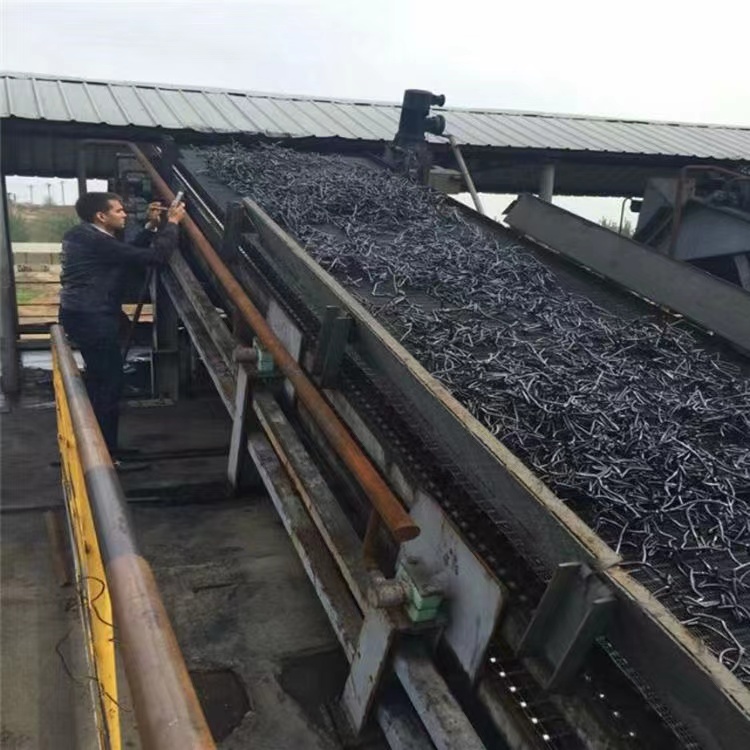
Purpose
Modified asphalt is used in the aluminum electrolysis industry to produce pre-baked anode blocks, manufacture high-power electrode rods, graphite crucibles, and activated carbon, and can also be used as electrode binders, refractory material binders, etc.
Ton bag packaging
Woven bag, loose fitting.


